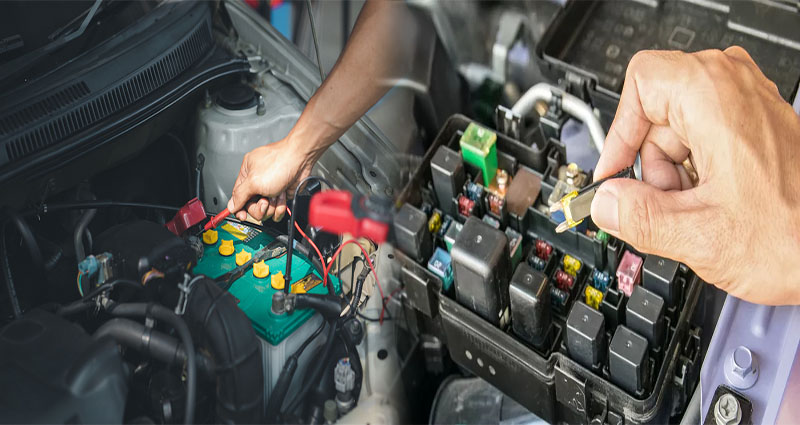In the realm of automotive repair, electrical system diagnostics present unique challenges and require specialized expertise. Automotive technicians skilled in conducting electrical system diagnostics play a crucial role in identifying and resolving complex electrical issues in vehicles. In this article, we will explore the proficient tasks involved in conducting electrical system diagnostics and the importance of experienced technicians in this field.
Utilizing Advanced Diagnostic Tools
Proficient automotive technicians rely on advanced diagnostic tools to effectively assess electrical systems in vehicles. These tools, including multimeters, circuit testers, and scan tools, enable technicians to measure voltages, diagnose faulty components, and identify wiring issues. Diagnostic tools assist in pinpointing the root cause of electrical problems, saving time and ensuring accurate diagnostics.
Understanding Wiring Diagrams
Comprehending wiring diagrams is an essential skill possessed by proficient automotive technicians. Wiring diagrams illustrate the intricate network of electrical circuits in a vehicle, detailing the connections between components and the flow of electricity. By analyzing and interpreting these diagrams, technicians can trace electrical pathways, identify potential faults, and perform targeted diagnostics. A solid understanding of wiring diagrams facilitates efficient troubleshooting and effective resolution of electrical system issues.
Conducting System Checks and Inspections
Proficient technicians systematically conduct system checks and inspections to identify electrical faults. They meticulously examine components such as batteries, alternators, starters, and fuses for signs of wear, damage, or corrosion. Additionally, they inspect wiring harnesses and connectors for loose connections or broken wires. Systematic checks and inspections help locate faulty components or problematic areas within the electrical system, laying the foundation for accurate diagnostics.
Employing Methodical Troubleshooting Techniques
Troubleshooting electrical issues requires methodical approaches employed by proficient automotive technicians. These technicians employ logical and systematic diagnostic techniques to isolate problems and identify their causes. By using a combination of visual inspections, sensor readings, and the aforementioned diagnostic tools, they follow a structured troubleshooting process. This methodical approach ensures that they don’t overlook potential causes and accurately diagnose and resolve electrical problems.
Interpreting Diagnostic Trouble Codes (DTCs)
Automotive technicians proficient in electrical system diagnostics possess the knowledge and experience to interpret Diagnostic Trouble Codes (DTCs) effectively. DTCs are generated by a vehicle’s onboard diagnostic system when an electrical issue is detected. Experienced technicians utilize scan tools to retrieve these codes and cross-reference them with comprehensive databases. This process helps them pinpoint the specific area or component of the electrical system that requires attention, streamlining the repair process.
Conducting Repair and Replacing Faulty Components
Once the source of an electrical problem has been identified, proficient technicians undertake necessary repairs or component replacements with skill and precision. They follow manufacturer guidelines and specifications while working on electrical systems. This level of expertise ensures that repairs are completed accurately, maintaining the integrity and functionality of the electrical system. Proficient technicians also test electrical systems after repairs to verify their effectiveness and confirm that the issues have been resolved.
Continuing Education and Skill Development
Automotive technicians proficient in electrical system diagnostics understand the importance of ongoing education and skill development. They stay updated with advancements in automotive technology and electrical systems through manufacturer training programs, seminars, and industry certifications. This dedication to continuous learning ensures that they remain equipped with the knowledge and skills required to tackle the ever-evolving complexities of electrical diagnostics effectively.
Conducting electrical system diagnostics is a task that demands proficient automotive technicians with specialized skills and knowledge. These technicians utilize advanced diagnostic tools, comprehend complex wiring diagrams, and employ systematic troubleshooting techniques to identify and resolve electrical issues efficiently. Their ability to interpret DTCs, conduct thorough inspections, and undertake accurate repairs and component replacements ensures the optimal functioning of a vehicle’s electrical system. The ongoing pursuit of education and skill development further enhances their proficiency in this vital aspect of automotive repair.










